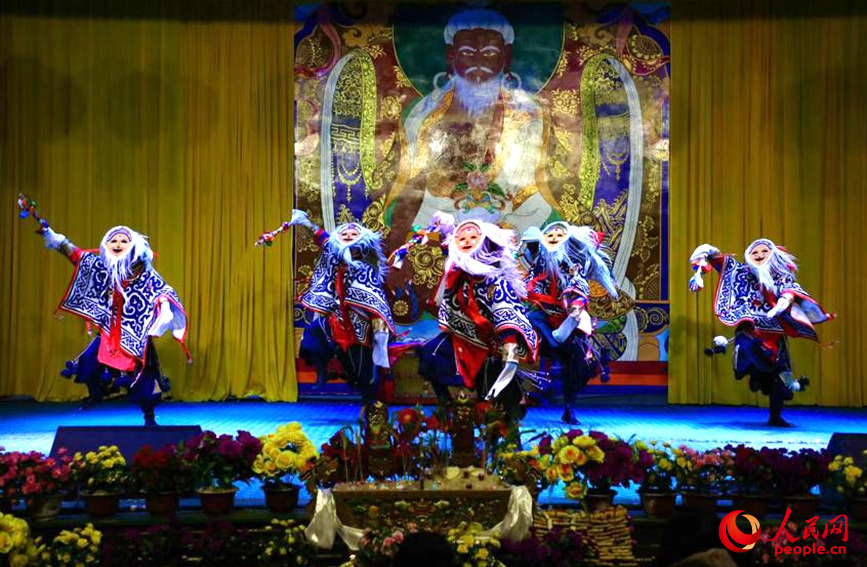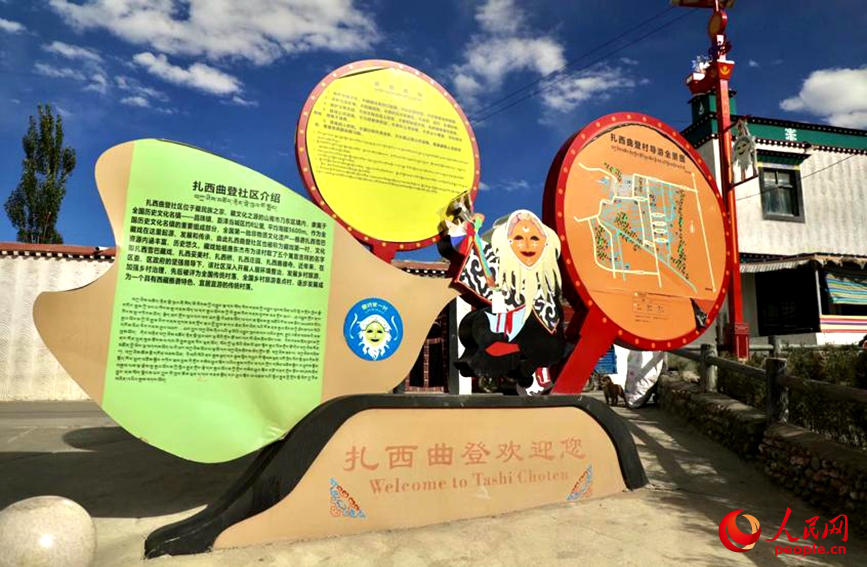
With yellow masks on their faces, five Tibetan opera performers took the audience on a journey back in time in Tashi Choden community, Naidong district, Shannan city, southwest China's Xizang Autonomous Region.
Yarlung Tashi Sholpa, a form of Tibetan opera, was created by Thangtong Gyalpo, founder of Tibetan opera, during the 15th century.
"Yarlung Tashi Sholpa is the oldest branch of Tibetan opera, and serves as the most prominent opening act in major events held in Xizang. It was included on the first list of national-level intangible cultural heritage in China," said 52-year-old Nyima Tsering, a national-level inheritor of the Yarlung Tashi Sholpa Tibetan opera.
Nyima Tsering, who began his artistic journey at the age of 16, has expanded his Tibetan opera troupe from a small group to an ensemble made up of dozens of performers. He has also established a training center over 400 square meters in size. During peak tourist seasons, the troupe stages six to seven shows in a single night.
As director of the Tashi Choden community, Nyima Tsering shoulders the responsibility of leading local residents towards prosperity.

Photo shows the interior of a B&B hotel in Tashi Choden community, Naidong district, Shannan city, southwest China's Xizang Autonomous Region. (People's Daily Online/Tsering Norbu)
In recent years, the Tashi Choden community has been exploring Tibetan opera resources. It has integrated elements of intangible cultural heritage into the construction of the living environment, creating a plethora of brands related to Tibetan culture and folk tourism.

Photo shows Tashi Choden community in Naidong district, Shannan city, southwest China's Xizang Autonomous Region. (People's Daily Online/Tsering Norbu)
Since June 2020, the community has welcomed over 70,000 tourist arrivals, generating more than 5.6 million yuan (about $770,336) in tourism revenue. Folk tourism has not only increased the incomes of the local residents but also enhanced the community's visibility.
"In the past, our primary source of income was farming and engaging in labor-intensive work at construction sites, which earned us just over 100 yuan a day. What we do now is provide hospitality to tourists and maintain cleanliness, which allows us to generate a steady income," said a resident who runs a B&B hotel in Tashi Choden community, revealing that the annual net income from running such a business can exceed 25,000 yuan.
